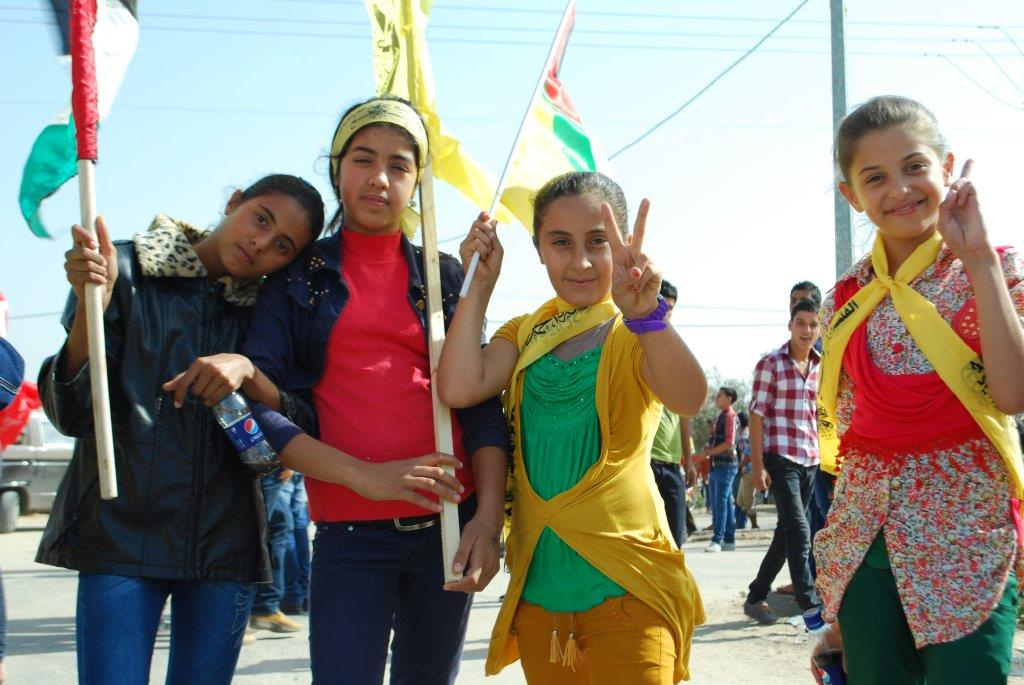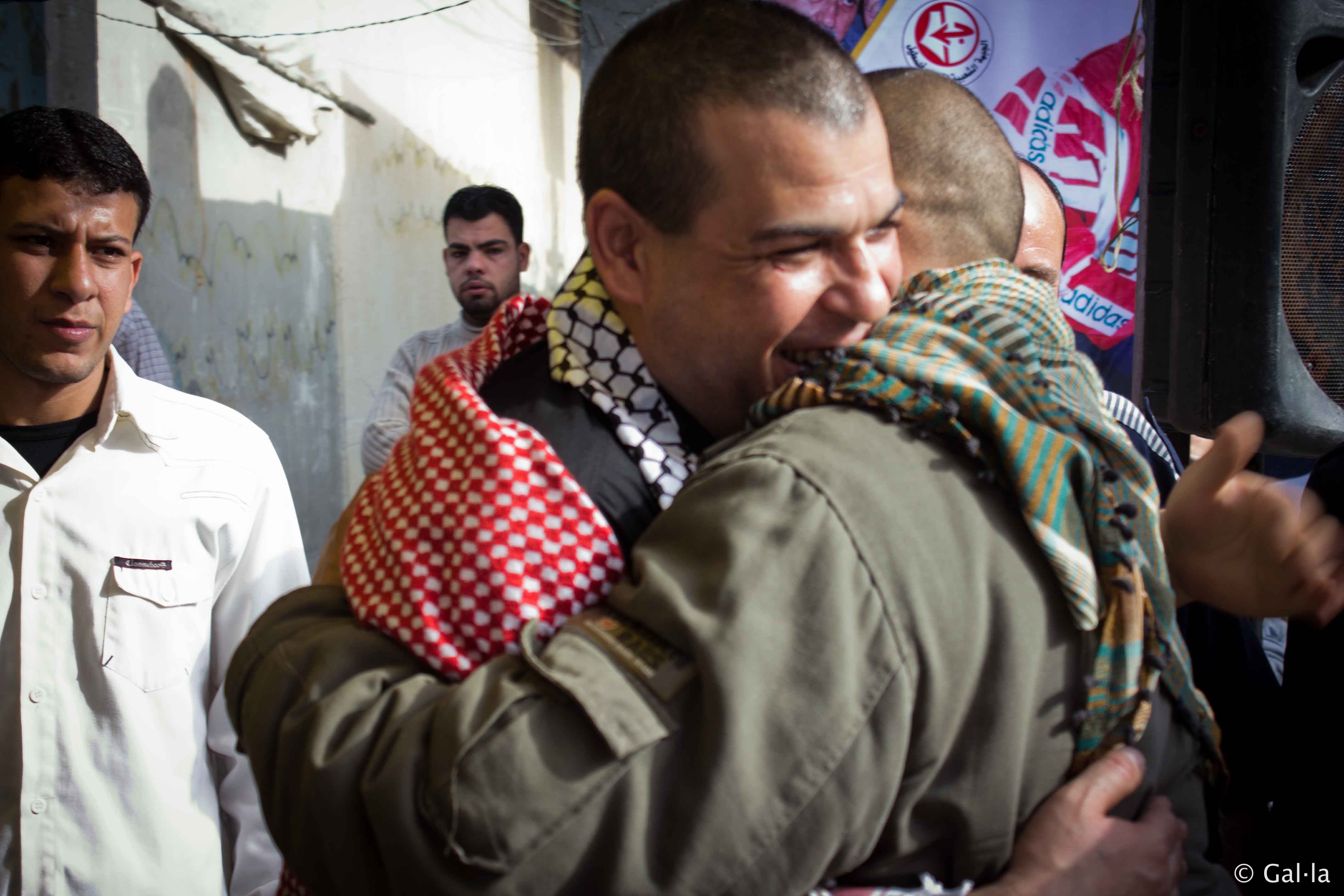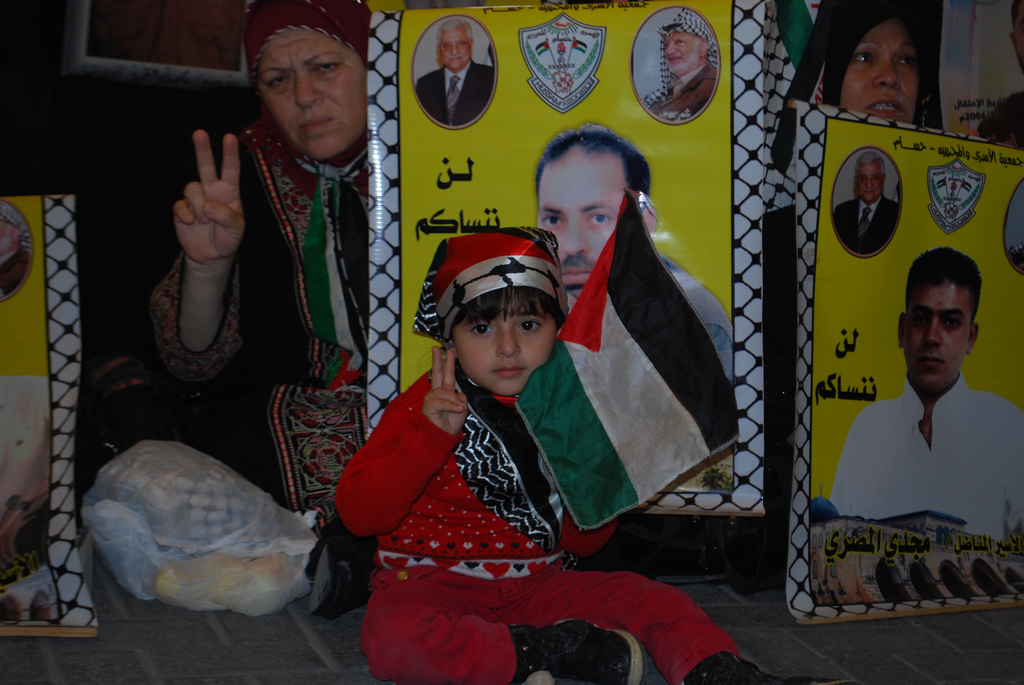Tag: International Committee of the Red Cross
-

Photos: A hero returns to Gaza
5th November 2013 | International Solidarity Movement, Charlie Andreasson | Gaza, Occupied Palestine What could be a more appropriate theme for this Monday demonstration for prisoners than those recently released by Israel? Would it have been possible to have a different one? Possible, but hardly appropriate. On the street outside the Red Cross, a temporary stage…
-

Photos: Released detainees celebrate new freedom with supporters in Gaza Strip
2nd November 2013 | International Solidarity Movement, Gaza Team | Gaza, Occupied Palestine Five former Palestinian detainees freed overnight Wednesday in the Gaza Strip have received a resounding welcome. Their families have erected celebration tents outside each of their homes to receive supporters and delegations. On Thursday afternoon, an overflowing bus carried several dozen well-wishers…
-

Photos: Detainee families, supporters keep Gaza vigil on eve of prisoner release
29th October 2013 | International Solidarity Movement, Gaza Team | Gaza, Occupied Palestine Families and supporters of Palestinian detainees held by Israel celebrated tonight’s promised release of 26 prisoners during a weekly sit-in Monday morning. The regular event, which began in 1995, brings comrades, friends and relatives of Palestinian prisoners together in the courtyard of the…
